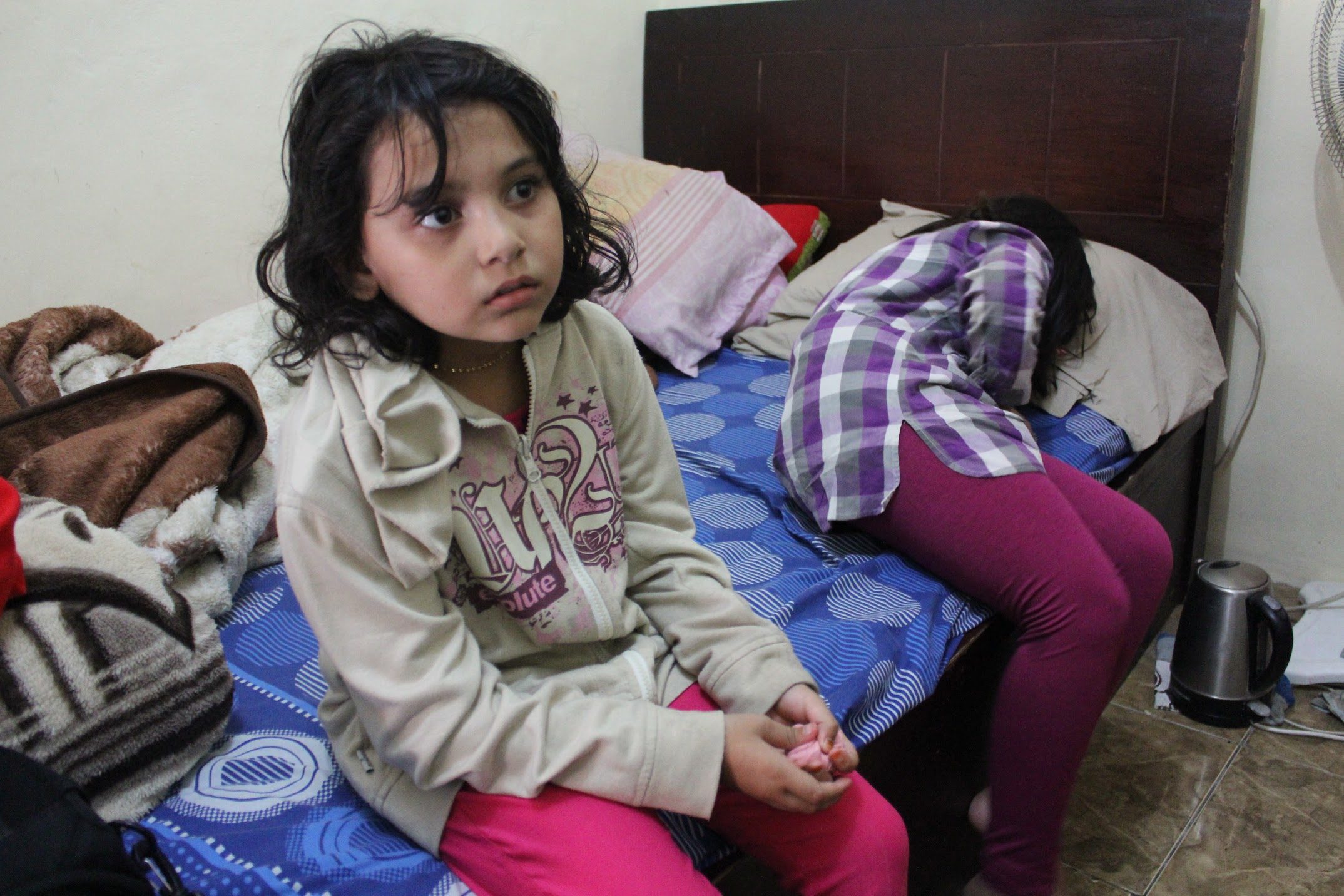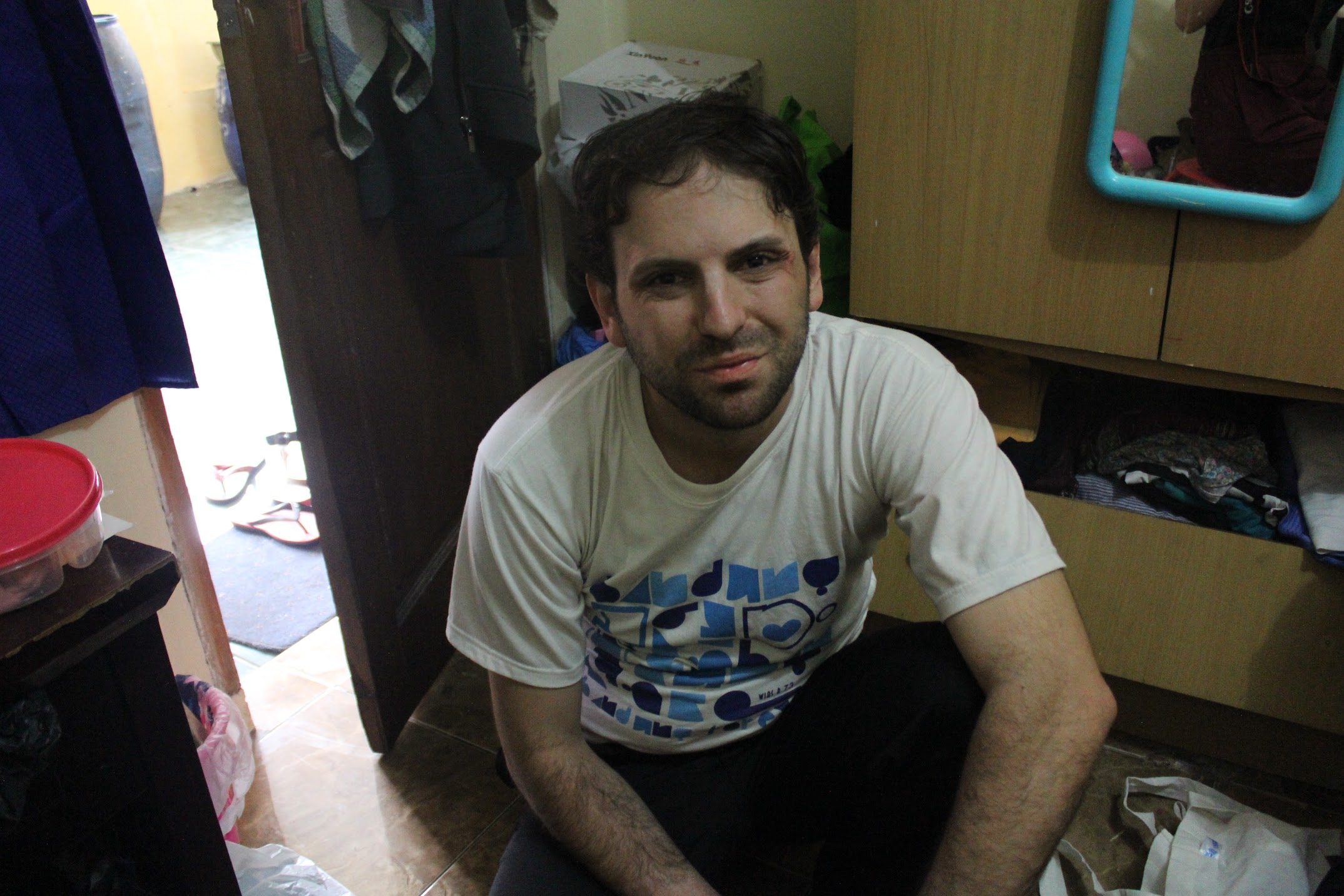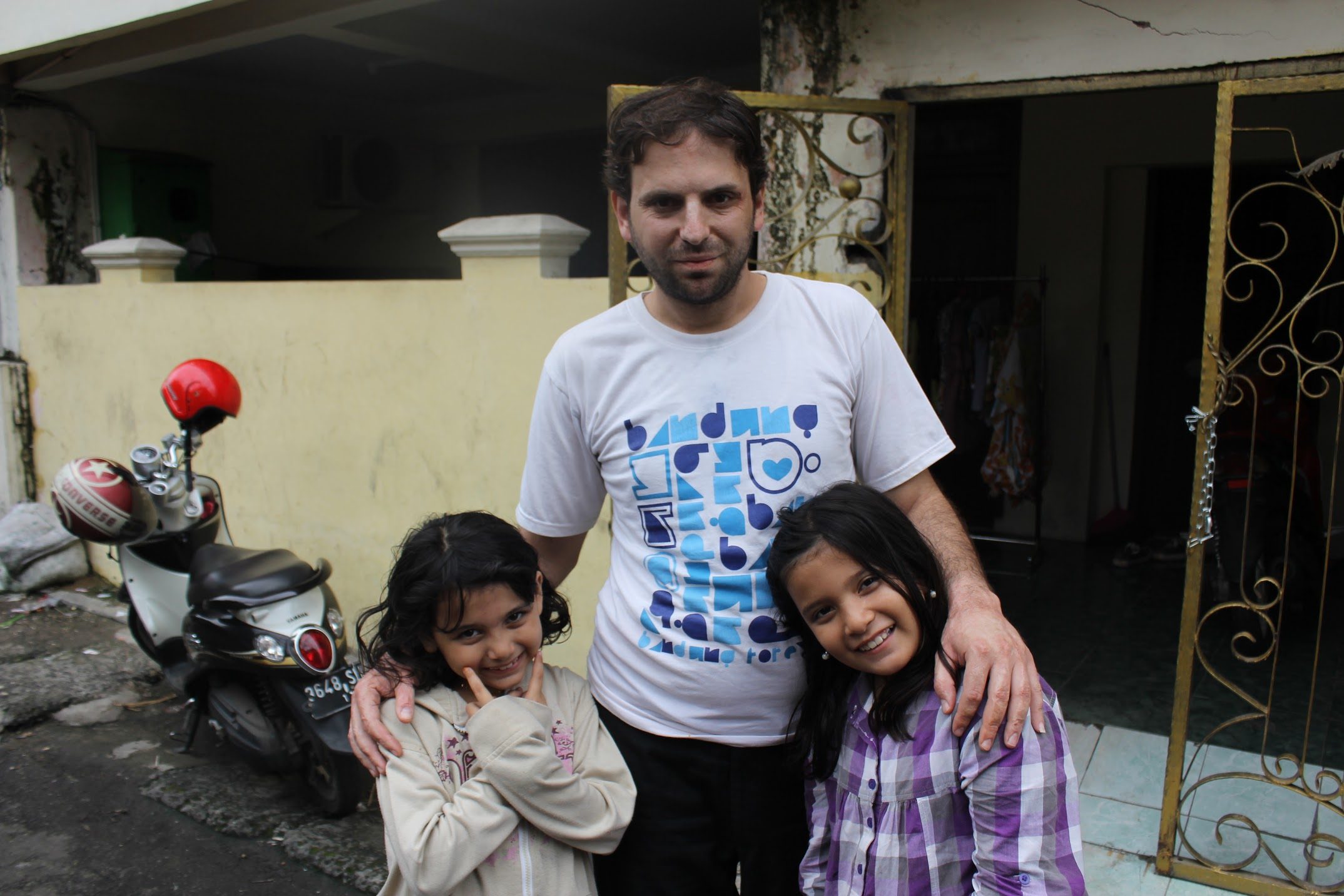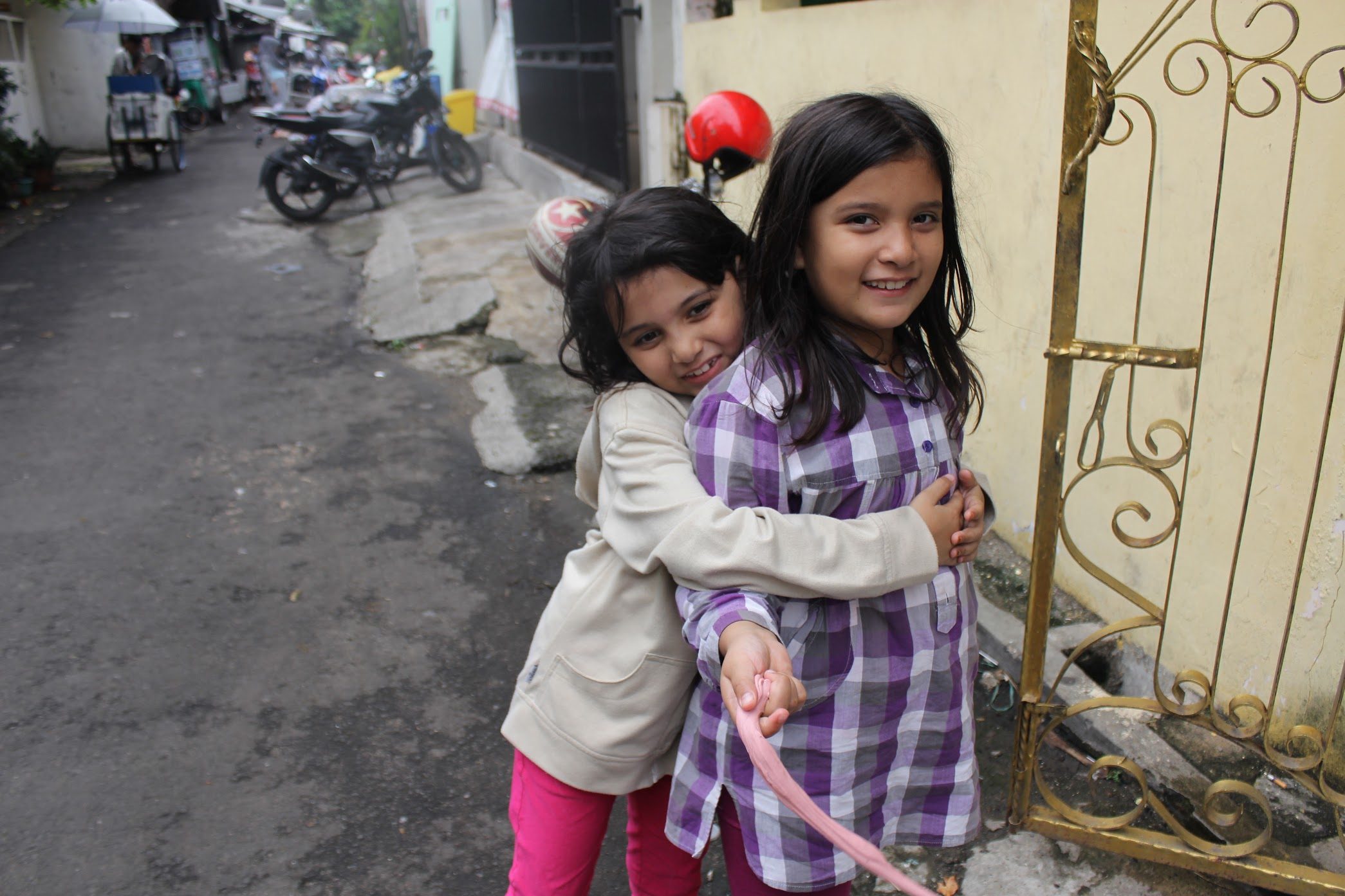SUMMARY
This is AI generated summarization, which may have errors. For context, always refer to the full article.

JAKARTA, Indonesia – When Palestinian Ahmed Jaber fled his war-torn home to find a better future for his two girls, he did not anticipate what was about to happen – or that today, 14 years after he fled, he would still be in limbo, living in a 25-square-meter room in a boarding house in Indonesia.
In early 2003, when U.S. troops came to Iraq, Ahmed – who was born in Iraq but whose parents are Palestinian – fled to Jordan after his home was set on fire by Shiites. He was left with burns to his hands, body and face. He was only 18 years old at the time.
The only condition for Ahmed when he moved to Jordan was he was not allowed to work – similar to the rules currently in place in Indonesia for refugees.
“The cost of living to stay in Jordan is expensive. The cost of the house, the costs for treatment to the hospital were too expensive, because we are not citizens of Jordan. So in order to buy medicine, I had to incur additional costs,” he said.
“If I could not work, then how would we survive in Jordan?”
Ahmed lived in a refugee camp that sheltered more than 800 people for 8 months. He was able to find some work illegally and during that time, he met an Indonesian woman, Tati, who was working as a maid, and who later became his wife. They had two daughters, Rawan and Razan.
In 2013, Ahmed decided it was time to leave and move his family to Indonesia.
New life?
Ahmed, now 32, lives in a tiny Kos (boarding house) hidden away behind Indonesia’s biggest mall, with his wife and two daughters.
The Kos has only enough room for a double bed, a cupboard, a desk and one toilet. In the corner of the room, is a stack of boxes which takes up a quarter of the room. The girls sleep on the bed, while Ahmed and his wife pull out sheets each night and sleep on the floor.

Each night, Ahmed worries about when and where their next source of food will come from. They have been living in similar conditions for more than 3 years.
“I ended up borrowing money to buy a plane ticket to Indonesia,” he said. “I collected funds around Rp 22 million ($1,646) and we arrived in Indonesia in February 2014.”
From there, Ahmed planned to illegally travel to Australia by boat, after hearing success stories from friends who had made the journey safely and are now Australian citizens.
“I have never tried to cross over to Australia, because when I arrived in Indonesia, the road to cross to Australia was already closed,” he said.
“The Australian Prime Minister was new, and anyone who would cross over to Australia will be pushed back.”
In mid 2013, then Prime Minister of Australia Kevin Rudd announced that asylum seekers who arrived on unauthorized boats would never be resettled in Australia. A few months later, Prime Minister Tony Abbott took power and continued with the policy, which saw the number of boats coming into Australia drop drastically.
Today, Australia denies resettlement to political refugees arriving on boats and turns vessels back when it is safe to do so, despite criticism of the hardline policy.
‘My plans fell through’
Realizing there was no safe and assured way to take his family to Australia, Ahmed applied to the United Nations High Commissioner for Refugees (UNHCR) and was told on numerous occasions to “wait patiently”.
As part of the Indonesian laws for refugees, Ahmed is not allowed to work and his daughters are not able to go to school even though his wife is a citizen – unless the children become citizens themselves.
Ahmed says he has inquired about getting Indonesian citizenship for his children but was told to wait. He also does not have the money to pay for the paperwork required.

Ahmed said his daughters are his primary concern.
“I’m always sad when thinking about the fate of my two daughters. The situation is very uncomfortable for both my daughters,” he said. “How do I make them comfortable in life, go to school and have a bright future? Because all my plans did not go smoothly.”
He added that his wife, who is 18 years his senior, is already 50 and will have to retire soon.
“I want to be helped by the Government of Indonesia. I ask for help for my children’s sake, because I have no place to stay, no money to buy food, and I do not have a job.”
Young dreams
9-year-old Rawan told Rappler she wants to go to school with her neighbors and that her favorite subject is math. She hopes one day she can be a flight attendant so she can travel and see the world.
7-year-old Razan dreams of becoming a doctor, to help those who are not able to afford it.
Ahmed and his wife are doing the best they can to bring up their two girls, teaching them to read and write in Bahasa Indonesia.
But they continue to hope that they can one day call Australia home, because Ahmed said he already has friends and family there. He clarified that he would be open to going to any other country, as long as he is able to work and provide for his family.

There are more than 13,000 refugees and asylum seekers registered with the UNHCR in Indonesia, many of whom like Ahmed and his family are stuck in limbo for years – waiting for their papers to be processed.
Add a comment
How does this make you feel?
There are no comments yet. Add your comment to start the conversation.